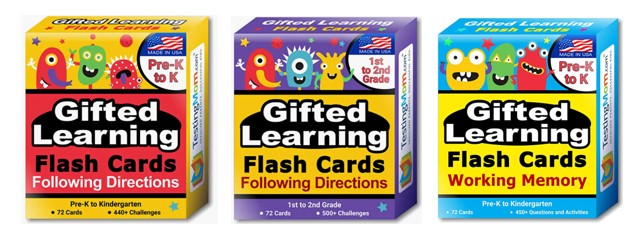Attention Deficit Disorder (ADD)/Attention Deficit Hyperactivity Disorder (ADHD)
What is ADD/ADHD?
There are many symptoms associated with attention deficit/hyperactivity disorder (ADHD), however not every child will present all the possible symptoms.
In general, children with ADHD find it difficult to maintain attention to tasks like schoolwork and chores. This can lead to extreme disorganization and an inability to keep track of important items like schoolwork or even favorite toys.
Children with ADHD can be easily distracted by background noise, like the goings-on in another room or even his or her own thoughts. It is possible for this inattentiveness to lead to dangers in the real world, such as forgetting the importance of looking both ways before crossing a busy street.
The “H” in ADHD represents hyperactivity, which can show itself as constantly moving or fidgeting even when inappropriate, like during class or a family dinner. ADHD can also cause impulsivity, which is marked by a lack of self-control or the need for immediate gratification. A child with impulsivity may constantly interrupt during conversation, for example.
A child can be diagnosed with attention deficit disorder without the hyperactivity (ADD) if excessive fidgeting and movement are not apparent. Sometimes one aspect of ADHD is more apparent and distracting to your child, so the inability to attend to tasks is more debilitating than the hyperactivity is, and vice versa. However, a child can present the “combined type” of ADHD, which indicates an equal problem with both inattentiveness and hyperactivity.
How Do They Test for ADHD?
To assess a child for ADHD, begin by talking to your pediatrician or to a psychologist or psychiatrist. Through interviews and questionnaires, they will ask family members, caregivers, teachers and other adults who care for the child to rate the child’s behavior in different settings such as at home, school and with their peers. Questionnaires and interviews will ask about behaviors in areas of inattention (i.e. has trouble organizing tasks, is easily distracted, makes careless mistakes), hyperactivity and impulsivity (i.e. fidgets or squirms in seat, can’t wait their turn, interrupts).
What You Can Do to Help Your Child
Medication: Medications are available to help children with ADHD. A psychiatrist or clinical psychologist can thoroughly evaluate and diagnose your child. There are stimulant and nonstimulant medications that may help. Stimulants work by increasing dopamine and norepinephrine, which are brain chemicals important when thinking and maintaining attention. Your physician may decide to recommend nonstimulants like an antidepressant if stimulants aren’t working for your child. Closely monitor your child when taking any type of medication.
Psychological Interventions: Behavioral therapy can be helpful to manage ADHD. A behavioral therapist can help your child recognize problematic inattentiveness and teach them to maintain structured chore lists, homework checklists, etc., and help the family create daily routines.
School Accommodations: A child with ADHD has the legal right to educational accommodations under a 504 Plan or, for children who qualify for special education services, an Individualized Education Plan (IEP). Below is a list of some of the more common classroom accommodations that help provide educational equity in the classroom:
- Receiving Preferential Seating (seating close to the teacher or main instructional tools, like the class smart board)
- Getting a Daily Agenda (a checklist of important activities)
- Being Given a Reduced Workload (eliminate “extra” assignments that aren’t critical to instruction or shorten essential assignments.)
- Getting Extended Time for Tests and Assignments (helps alleviate “deadline” anxiety and allows your child to finish assignments completely)
Interventions at Home:
- Hire a One-on-One Tutor. An experienced tutor like ours here at TestingMom.com can meet with your child regularly to help stay organized and focused while completing homework; tutor in educational skills and concepts he or she needs a little more time to master; and reinforce organizational skills by creating and helping your child maintain checklists. Contact Testing Mom today! Call (813) 544-3833 or Email tutoring@testingmom.com.
- Establish Routines. Create and maintain routines for snacks, homework, free time, dinner, school backpack organization, bedtime, etc.
- Join TestingMom.com and GogoBrain.com. On TestingMom.com, your child can work with HearBuilder in our Skill Building Academy, which teaches listening and following directions. Reach out to our Student Success Team at 877-609-6203 or help@testingmom.com. They can guide you to practice questions to build listening, focus, and working memory skills. Activities on GoGoBrain.com will help your child build skills in listening, following directions, self-control, focus and attention and working memory – all areas of challenge for children with ADHD.
- Create Checklists. Maintain daily checklists for your child with all of the important tasks he or she needs to complete, like chores and homework. Be sure to remind your child frequently to refer to the checklist to reinforce checklist use.
- Work with these Gifted Learning Flashcards from TestingMom.com, available on Amazon.com.
Resources:
Visit the National Institute of Mental Health’s (NIMH, a division of the National Institute of Health) website for more information, including risk factors for ADHD and helpful resources for parents: https://www.nimh.nih.gov/health/topics/attention-deficit-hyperactivity-disorder-adhd
Some information contained here was sourced from the NIMH:
National Institute of Mental Health (2022). Attention-Deficit/Hyperactivity Disorder. Retrieved February 4, 2022, from https://www.nimh.nih.gov/health/topics/attention-deficit-hyperactivity-disorder-adhd



